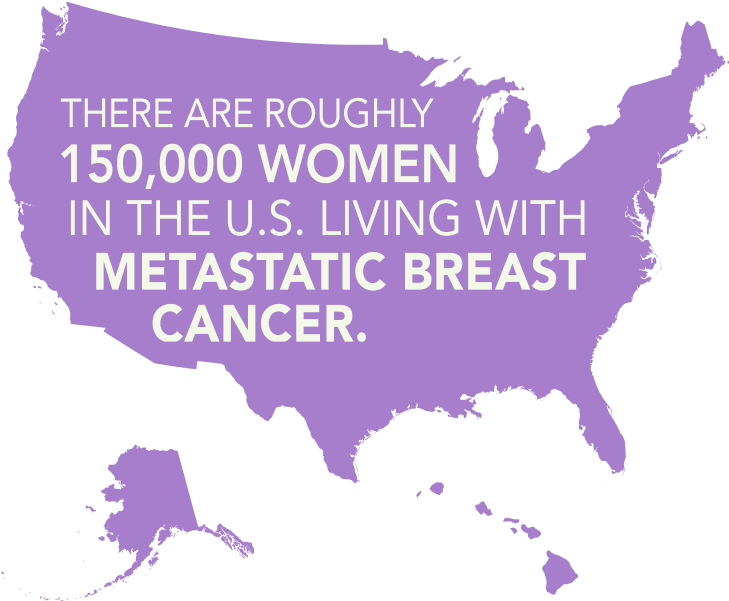What Is MBC?
BREAST CANCER IS DESCRIBED in different stages. The stages are determined by the size of the tumor and if it has spread to a certain number of lymph nodes or other areas of the body.
Metastatic breast cancer, also known as stage IV breast cancer, can be any size and occurs when cancer has spread outside the breast and nearby lymph nodes to other parts of the body, such as the lungs, bones, liver, or brain.
How Is MBC Diagnosed?
Because mBC may impact different areas of the body, your healthcare team may use the following tests to confirm diagnosis of the disease:
- Blood tests that may detect any abnormalities
- Imaging tests, such as an MRI, PET/CT scan, bone scan, and X-ray
- A biopsy using tissue or fluid samples to confirm the presence of cancer
- Additional cancer lab tests to help determine the subtype of the cancer
Once a diagnosis of mBC is made, treatment is based on the specific test results and what your doctor determines is right for you.
There is currently no cure for metastatic breast cancer, but there are treatments that can shrink the cancer or slow its progress for some time.
MBC Facts & Figures

Hormone receptor-positive (HR+), HER2- is the most common subtype of metastatic breast cancer, representing roughly 60% of all cases.
While some women with metastatic breast cancer have never had breast cancer before, most have had early breast cancer. In fact, roughly 20%-30% of women who’ve had breast cancer will develop metastatic breast cancer. And it can develop regardless of treatment or preventative measures taken.

